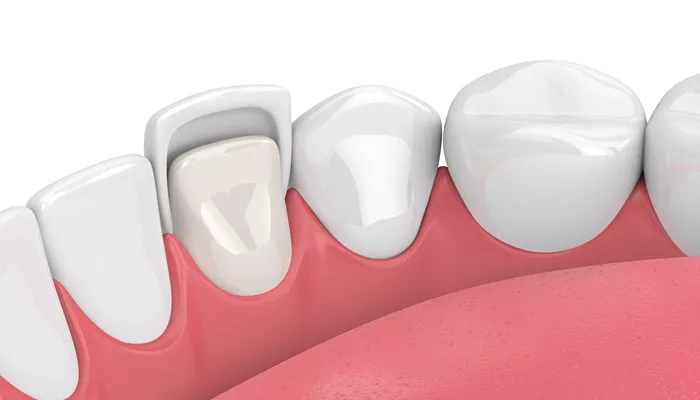Dental veneers are a popular cosmetic dentistry option that can dramatically improve the appearance of a person’s smile.
They are thin shells, typically made from porcelain or composite resin, that are bonded to the front of teeth to correct imperfections such as discoloration, chips, gaps, and misalignment. Understanding how long dental veneers can last is crucial for anyone considering this treatment. This article will explore the lifespan of dental veneers, factors affecting their longevity, maintenance tips, and realistic expectations for those interested in enhancing their smiles.
Lifespan of Dental Veneers
The longevity of dental veneers largely depends on the type of material used and how well they are cared for. Generally, there are two primary types of veneers: porcelain and composite.
Porcelain Veneers
Porcelain veneers are renowned for their durability and natural appearance. With proper care, they can last between 10 to 15 years, and in some cases, even up to 20 years. Their longevity is attributed to several factors:
Material Quality: Porcelain is highly durable and stain-resistant, making it less prone to discoloration over time compared to other materials.
Professional Installation: When applied by a skilled cosmetic dentist, porcelain veneers fit snugly and securely, which helps prevent issues like chipping or loosening.
Oral Hygiene: Maintaining good oral hygiene practices can significantly extend the life of porcelain veneers.
Composite Veneers
Composite veneers offer a more affordable option but generally have a shorter lifespan. They typically last between 4 to 8 years, with some cases extending up to 10 years with diligent care. The factors influencing their lifespan include:
Material Properties: Composite resin is less durable than porcelain and more susceptible to staining and wear.
Maintenance: Regular care is essential for composite veneers; neglecting oral hygiene can lead to quicker deterioration.
Installation Quality: Proper placement by a qualified dentist is crucial for maximizing the lifespan of composite veneers.
Summary Table of Veneer Lifespan
| Type of Veneer | Average Lifespan | Factors Affecting Longevity |
| Porcelain | 10-15 years | Material quality, installation, oral hygiene |
| Composite | 4-8 years | Material properties, maintenance, installation |
Factors Influencing Longevity
Several factors can impact how long dental veneers last:
Material Quality: As mentioned earlier, porcelain tends to be more durable than composite resin.
Oral Hygiene Practices: Regular brushing and flossing are vital in preventing decay around the veneers.
Dietary Choices: Foods and drinks that stain teeth (like coffee and red wine) can also affect the appearance of veneers.
Personal Habits: Activities such as teeth grinding (bruxism) or using teeth as tools can lead to premature wear or damage.
Regular Dental Visits: Routine check-ups allow dentists to monitor the condition of your veneers and address any issues early.
Maintenance Tips for Extending Veneer Life
To maximize the lifespan of dental veneers, patients should adhere to specific maintenance guidelines:
1. Maintain Good Oral Hygiene
Brushing: Brush your teeth at least twice a day with a soft-bristled toothbrush and non-abrasive toothpaste.
Flossing: Floss daily to remove plaque between teeth where brushes can’t reach.
2. Avoid Staining Foods and Beverages
Limit consumption of foods and drinks that can stain teeth, such as:
- Coffee
- Tea
- Red wine
- Berries
- Soy sauce
3. Protect Against Teeth Grinding
If you grind your teeth at night, consider using a mouthguard to protect your veneers from excessive force.
4. Schedule Regular Dental Check-ups
Visit your dentist every six months for professional cleanings and examinations. This allows for early detection of any potential issues with your veneers or underlying teeth.
5. Avoid Bad Habits
Refrain from using your teeth as tools (e.g., opening packages) or biting hard objects (e.g., ice) that could chip or crack your veneers.
Realistic Expectations for Dental Veneers
While dental veneers can significantly enhance your smile, it’s essential to have realistic expectations regarding their longevity and maintenance:
Veneers Are Not Permanent Solutions: Over time, all dental materials may require replacement due to wear or changes in the mouth.
Individual Variability: The lifespan of dental veneers can vary based on individual habits and oral health conditions.
Regular Monitoring Needed: Patients should remain proactive about their oral health and communicate with their dentist regarding any concerns about their veneers.
Conclusion
Dental veneers are an excellent option for those looking to improve their smiles effectively. Understanding how long they can last—typically between 10 to 15 years for porcelain and 4 to 8 years for composite—is crucial when considering this cosmetic procedure. By practicing good oral hygiene, avoiding harmful habits, and attending regular dental check-ups, patients can maximize the lifespan of their dental veneers.
Related topics:

